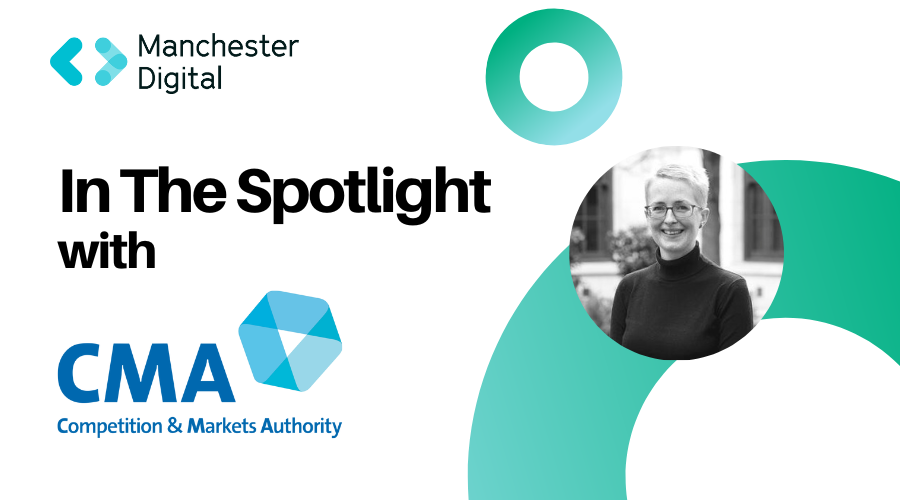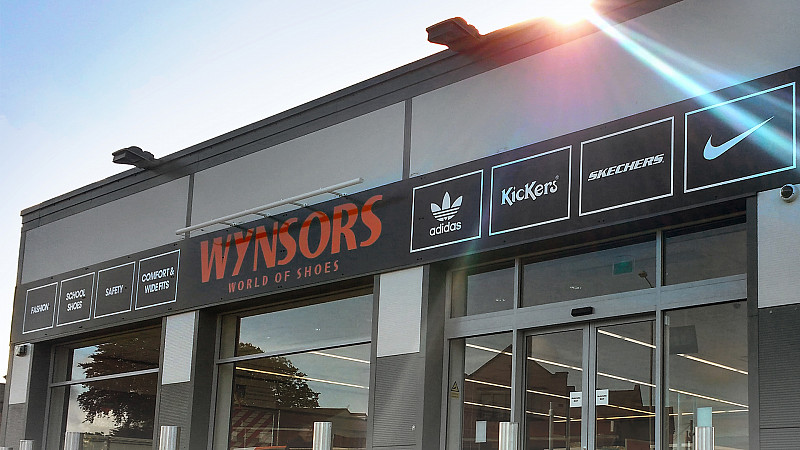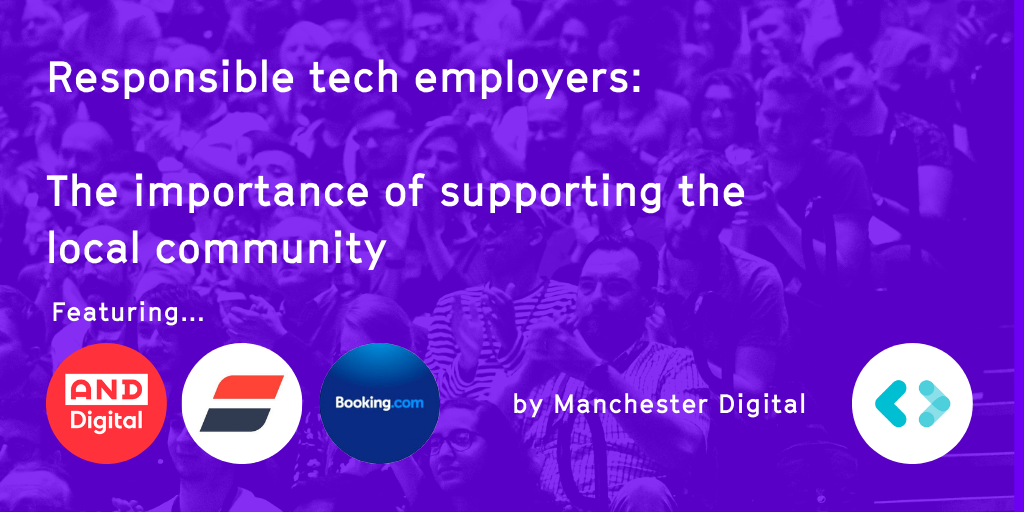
At Manchester Digital, we like to interview our members to find out a bit more about what they do and their work in the Greater Manchester digital and technology sphere. This week we're speaking with Felicity Algate, Director in the Competition and Markets Authority's Digital Markets Unit (DMU), based in Greater Manchester.
What does your organisation do?
The Competition and Markets Authority is the UK’s competition and consumer regulator. Ensuring fair competition and well-functioning markets, so innovative businesses thrive, and consumers benefit with real choice and value for money; is at the heart of what we do.
Alongside promoting competition, we help people and businesses by tackling unfair behaviour like unfair terms and misleading, false claims.
The work we do in promoting competition and consumer welfare has never been more important given current cost-of-living and cost-of-business challenges. Now more than ever genuine competitive pricing, trust in markets and innovation is critical for recovery.
I am a director in the CMA’s Digital Markets Unit (DMU), based in Greater Manchester. The Digital Markets Unit is a new unit focused on the largest digital firms to ensure that digital markets generate benefits for all consumers and businesses across the UK.
What do you think is currently the biggest issue facing the tech industry?
It is difficult to overstate how digital markets have changed the way consumers and businesses operate over the past few years. People can now keep in touch with loved ones more easily; businesses have been able to access a wider range of customers than ever before; and the economy has benefitted from the billions of pounds and millions of jobs generated by the UK digital sector (with Manchester playing an important role in this). However, the nature of digital markets can lead to a winner-takes-most situation where one or two very large firms come to dominate. Yesterday’s disrupters become today’s dominant incumbents – with little likelihood of challengers replacing them tomorrow. With reduced competitive pressure come fewer incentives to innovate, improve quality, and keep prices low.
While big firms aren’t automatically a problem having a few firms with huge amounts of market power can create problems for us as consumers, particularly risks of higher prices, less choice and having to give up more data than they would like. For businesses, it creates the risk that their new ideas may be quashed before they can get to market, that they may be unable to compete on a level playing field, and that they may be forced to accept unreasonable terms to reach their customers. For the economy as a whole, it risks lowering productivity, reducing investment in the UK tech sector, and holding back growth at a time when it is sorely needed.
The CMA has three strategic aims for our work in digital markets.
- First, we want people to be protected from harms and able to select the products and services best suited to their needs.
- Second, we want businesses to have fair access to markets as customers and competitors.
- And third, we want dynamic competition in digital markets to create an attractive ecosystem for investment and innovation.
The new digital markets unit will introduce new regulations for the largest digital firms, the regime is designed to limit the harms while maintaining the benefits of digital markets for consumers and businesses across the UK.
What is your organisation’s biggest achievement?
Our work is vast and varied so it’s hard to single out a specific achievement. Looking at the broad picture of what we do, the CMA continues to make a real difference to people’s lives across the UK.
The CMA has saved billions of pounds for consumers - £7 billion in the last 3 years alone. During the pandemic for example we acted swiftly and secured hundreds of millions of pounds in refunds for cancelled events and holidays.
The digital markets unit is still at a very early stage. The laws setting up the regime are due to be introduced in 2023 and most of my work involves supporting government to help create the new regime. In the meantime, the CMA has done some great work using its existing tools. This includes:
- Investigating how Amazon collects and uses third-party seller data, including whether this gives Amazon an unfair advantage in relation to business decisions made by its retail arm.
- We required Instagram to ensure that influencers better disclose when they are being paid to advertise a product – tackling hidden advertising, which can mislead consumers and is illegal in the UK.
- And we have launched an investigation into whether Amazon and Google are doing enough to protect consumers against fake online reviews.
What would you consider to be your organisation’s biggest challenge?
At a strategic level: keeping pace with fast moving digital markets whilst joining up with counterpart authorities across multiple jurisdictions – ensuring regulation is nibble, on the ball and not behind the curve.
My more immediate concern is scaling up the Greater Manchester office over the next 12 months. I’m looking forward to tapping into the incredible talent pool in tech markets.
What do you think the future looks like for Manchester’s tech sector?
We see Manchester as a really exciting place to recruit new colleagues into our organisation and have been impressed by the various talent initiatives in place which seek to build Greater Manchester’s digital workforce.
Greater Manchester is a powerhouse of digital expertise and capability, including businesses and the regions impressive universities. We want to be a part of, learn from and engage with, this impressive digital community.
Tell us something that we might not know about your company?
Our new Chair, Marcus Bokkerink, was raised in Manchester, he went to school here and is a Reds fan. He comes back regularly, in his words, hoping to find inspiration from at least one of the two.
Thank you Felicity!
To find out more about the Competition and Markets Authority, click here.








